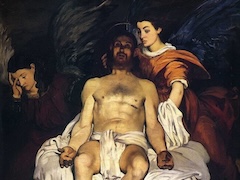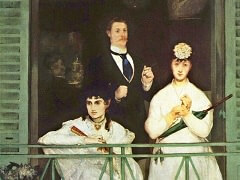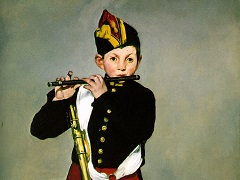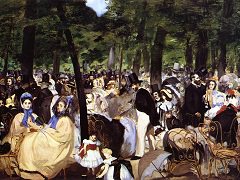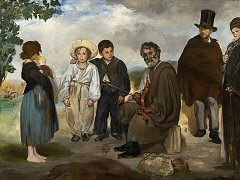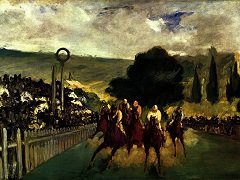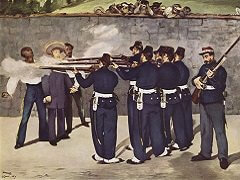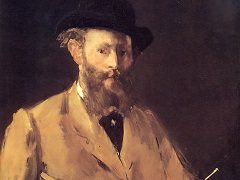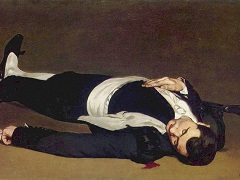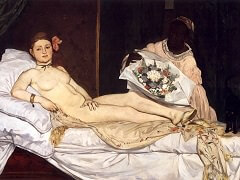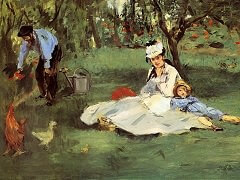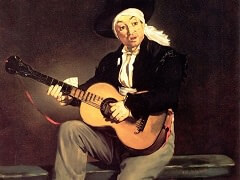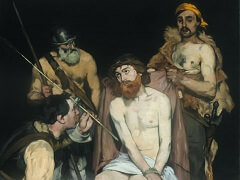Portrait of Emlie Zola, 1868 by Édouard Manet

On January 1, 1867, Zola published in La Revue du XIXe siecle a second important article on Manet. "What a splendid New Year's present," wrote Manet, thanking him. The following year he expressed his gratitude to the writer by painting this portrait and presenting it to him. Zola posed for the painting in Manet's studio in the rue Guyot, but he is shown working at his desk in his own surroundings. Manet has pinned up on the wall a reproduction of Olympia and a Japanese print; there is also a Japanese screen. The picture radiates an astonishing freshness, and, as with Degas's portrait of Duranty or Cezanne's of Gustave Geffroy, one feels that the artist is in sympathy with his subject.
In the 1868 Salon, Zola's portrait was badly hung, high up in a corner near the doors. It was ill received by the press. In Le National Henri Fouquier deplored the fact that Manet had followers, and wrote pedantically, "This year Manet has painted Zola, the high priest of the coterie of present-day 'nature-haters.' The accessories are not in perspective, and the trousers are not made of cloth." Luc-Olivier Merson, a fashionable artist of the period, made a comment worthy of a total ignoramus in L'Annie illustree of May 26, "The trouble is that the man can neither draw nor paint."
Of his experience as a sitter, Zola wrote in L'Evinement illustre, May 10, 1868:
I remember posing for hours on end.With limbs numb from remaining motionless and my eyes weary from staring at the light, the same thoughts kept murmuring
in the back of my mind. The foolish chatter one hears everywhere, the lies of some and the platitudes of others, all that human noise that flows idly by like dirty
water, was far away. It seemed to me that I had left the earth for a higher sphere of truth, and I was filled with pity and disdain for the poor wretches stumbling
along down below.
Now and again, half-dozing off as I sat there, I looked at the artist standing at his easel, his features taut, his eyes bright, absorbed in his work. He had forgotten me;
he no longer realized that I was there.


